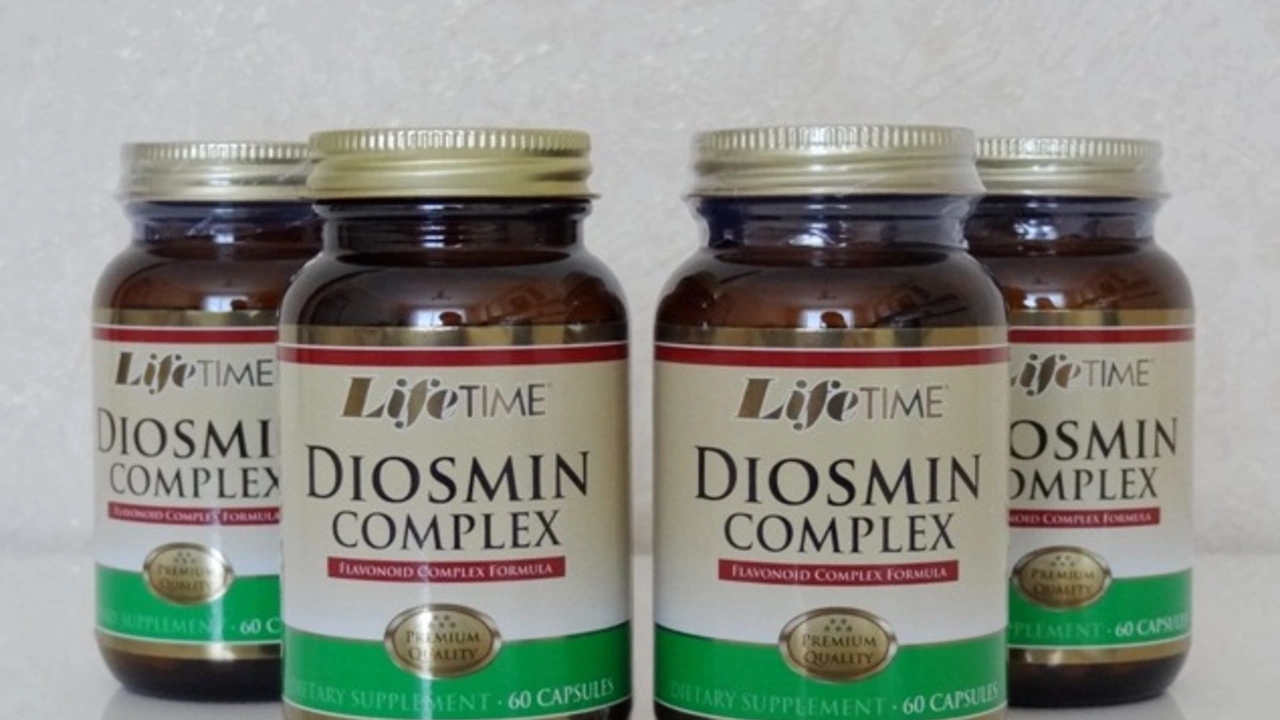Diosmin: What It Is and Why People Use It
Diosmin is a plant-based flavonoid often sold as part of MPFF (micronized purified flavonoid fraction). People use it mainly for vein problems — think varicose veins, swollen legs, and hemorrhoids. It works by improving vein tone and reducing inflammation and fluid buildup, so legs feel less heavy and painful and hemorrhoid swelling can shrink faster.
How diosmin helps — clear, practical effects
If your legs get tired, achy, or swell after standing, diosmin can reduce those symptoms. For hemorrhoids, short diosmin courses during a flare-up can lessen bleeding and pain. Clinical use usually targets symptom relief rather than fixing the underlying cause, so diosmin is most helpful alongside lifestyle steps like compression stockings, leg elevation, and exercise.
Brands you’ll see often contain diosmin plus hesperidin. Daflon (a common trade name in many countries) is an example of MPFF marketed for venous issues. When a product is labeled MPFF, it usually means a concentrated, micronized form that’s easier for the body to absorb.
How to use diosmin and stay safe
Typical dosing: many products use 500 mg tablets taken twice daily (500 mg twice a day for MPFF is common). For hemorrhoid flare-ups, shorter higher-intensity courses are sometimes recommended for a few days to a few weeks. For chronic venous insufficiency, people often take diosmin for several months to see sustained benefit. Always follow product directions or your clinician’s advice.
Side effects are usually mild: stomach upset, diarrhea, and occasional headache are the most common. Allergic reactions are rare but possible—stop the supplement and call a doctor if you get a rash, swelling, or trouble breathing. If you’re on blood thinners or have a bleeding disorder, talk to your healthcare provider before starting diosmin because herbal products can affect clotting in unpredictable ways.
Pregnancy and breastfeeding: there’s limited safety data, so don’t assume it’s safe. Ask your doctor before using diosmin during pregnancy or while nursing.
Picking a good product: choose brands that list MPFF or the diosmin/hesperidin ratio, buy from reputable pharmacies or retailers, and look for third-party testing when you can. Avoid extremely high doses or promises that sound too good to be true.
Practical tip: pair diosmin with simple measures — compression socks for varicose veins, regular walking, leg elevation after long standing, and a fiber-rich diet for hemorrhoid prevention. If symptoms don’t improve after a few weeks, or if you have severe pain or bleeding, get professional care. Diosmin helps many people feel better, but it’s one tool among several for vein and anorectal health.

The Science Behind Diosmin: Why This Dietary Supplement is a Game-Changer
In my latest blog post, I delve into the science behind Diosmin, a dietary supplement turning heads in the health community. This naturally occurring flavonoid, mainly found in citrus fruits, has been linked to several health benefits, including improved cardiovascular and lymphatic health. Research has shown that it can help with conditions like hemorrhoids and chronic venous insufficiency. I also discuss how Diosmin's potent anti-inflammatory and antioxidant properties make it a game-changer in the world of dietary supplements. Lastly, I touch upon the safety and potential side effects of this supplement, to give a comprehensive understanding of this promising compound.
read more




